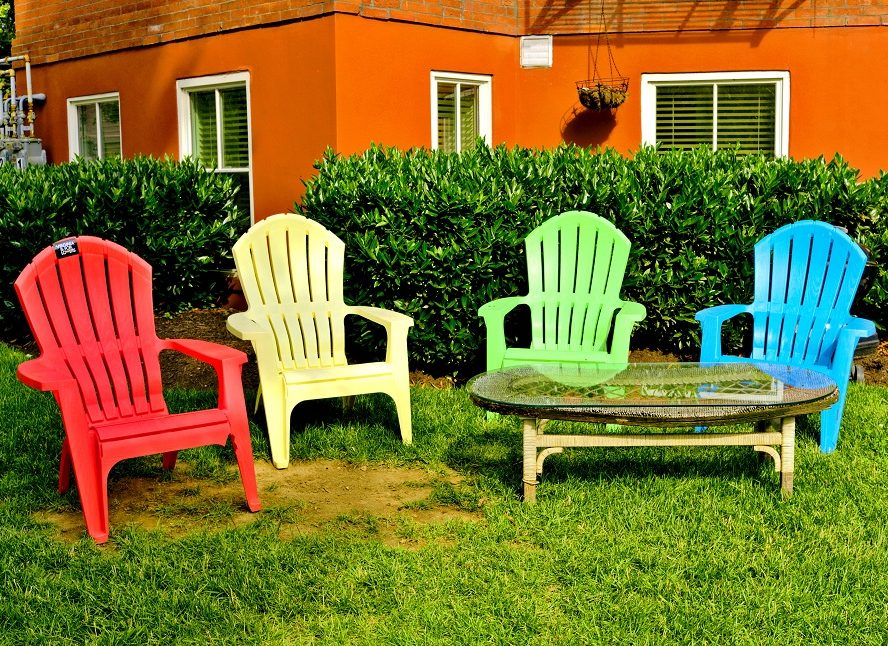
When he started to write The Realistic Joneses, Will Eno knew that the subject of his play would be ‘people dealing with the plain mystery of things, with the one particular trajectory that we must all follow.’ That’s a Chekhovian ambition, and he achieves it with a piece of exceptionally clever writing. The Realistic Joneses is a tragi-comedy, with the emphasis on the comic, but the humour arises from the way the characters respond to a bleakly serious situation.
Bob Jones has been diagnosed with a degenerative disease and has become withdrawn and uncommunicative, much to the frustration of his wife, Jennifer. A young couple called John and Pony Jones call on them. They have just rented the house next door, and they seem eager to be friendly neighbours. Over the course of the next few days they meet and talk, and that’s just about all there is to it. The narrative arc stays pretty flat, and little occurs that might be thought ‘dramatic’. But Will Eno’s writing is wonderfully nimble and full of surprise. He undermines the predictable tropes of small talk, often with laugh-out-loud results. There is something very engaging about the way one is constantly wrong-footed, as when a rhetorical question gets an unexpected response:
‘Do you know what’s really scary?’
‘I do, but it’s always good to hear it again.’
The two couples initially appear to be very different, though later we learn that they have more in common than just a shared surname. Bob is taciturn, but words tumble from John, often incoherently. Jennifer is down-to-earth sensible, but Pony is all nervous smiles and overwrought gestures. As the two couples get to know each other, their apparently bland chat hints at something deeper:
‘Moving is a pain.’
‘Standing still is no picnic, either.’
Eno may well have been inspired by Chekhov, but there’s more than a smidgen of Beckett in the way these characters reveal that words are the only resource that have at their disposal when faced with life’s grimmest realities. Just words, and the human contact that words serve to achieve. Even the emptiest of exchanges is better than no contact at all:
‘You should do what I do.’
‘What do you do?’
‘I don’t know.’
In Peter McKintosh’s unfussy set, Bob and Jennifer’s backyard is a plain green lawn, backed by large sliding glass doors in which, at times, the audience can see themselves reflected, just as the play reflects upon our shared human condition. Large cardboard boxes serve as the only furniture, conveying a sense of fragile impermanence. Director Simon Evans has adopted an unfussy approach, too, allowing his actors room to create four poignantly human characters. Jack Laskey conveys John as a skinny, near-manic bundle of nervous energy, full of wide-eyed wonder and positivity one moment, and suddenly paralysed by some unspoken fear the next. John’s young wife Pony seems at first to be a silly airhead, shrinking fearfully from the sight of a dead squirrel, but in Clare Foster’s subtly measured performance, Pony gradually becomes a far more sympathetic and more substantial character. Sharon Small’s Jennifer initially appears to be coping admirably with Bob’s illness and the changes in his behaviour that it has caused, but later, in an unexpected outburst of anger, she reveals that there is real despair lurking just beneath her brisk, no-nonsense exterior. Finally, Corey Johnson skilfully exploits Bob’s near immobility and poverty of speech to convey a wealth of emotion and meaning. When he does speak, it is often to comment bluntly on the pointlessness of a great deal of what we say. All four performances are superb.
What is ‘realistic’ about these Joneses lies not merely their surface naturalism, but in the way that, in their desperation and in their need for each other, they speak movingly of our shared mortality. The Realistic Joneses is one of those rare plays where one leaves the theatre determined to buy a copy, so as to be able to enjoy its sparkling language at leisure. ★★★★★ Mike Whitton 15th February 2020

